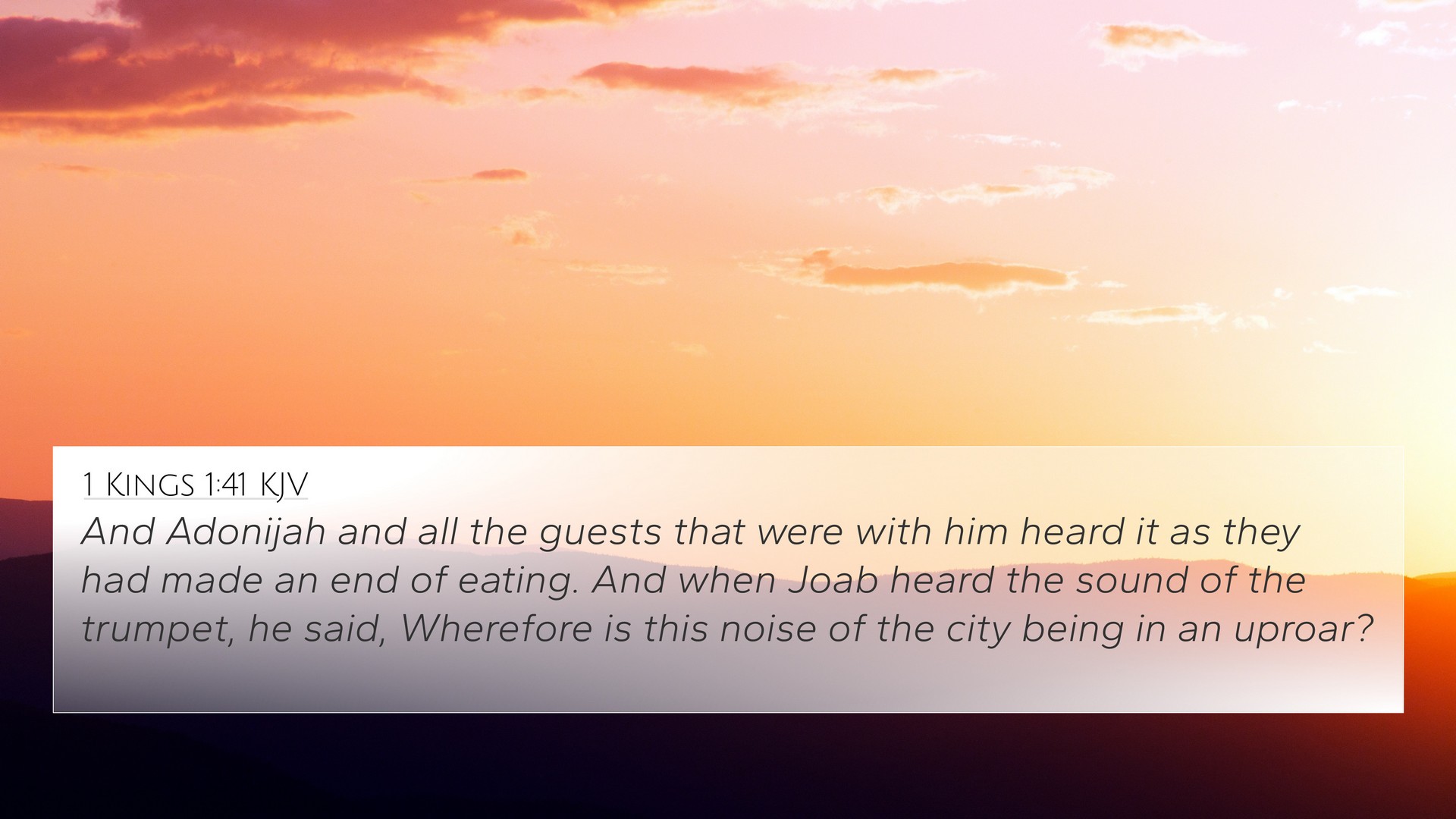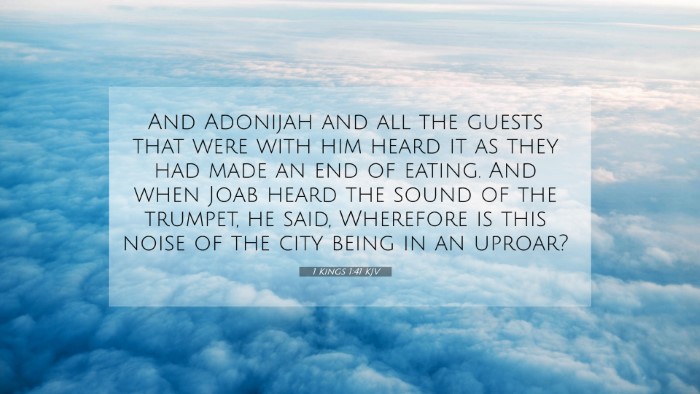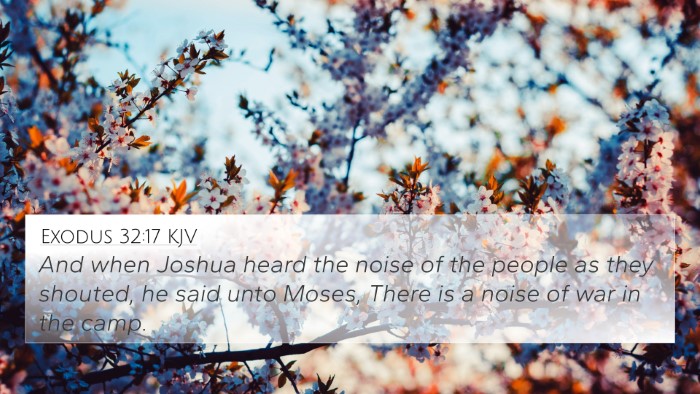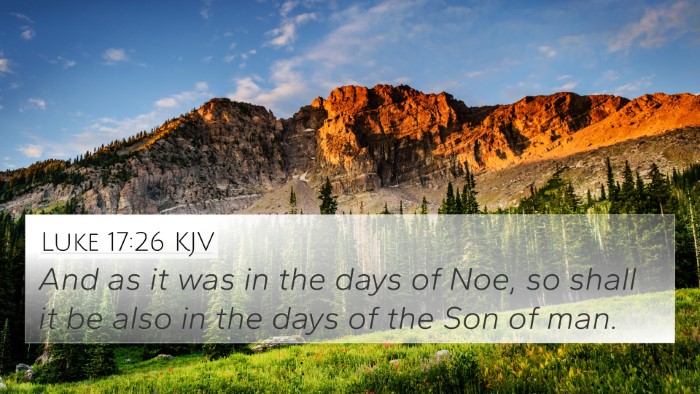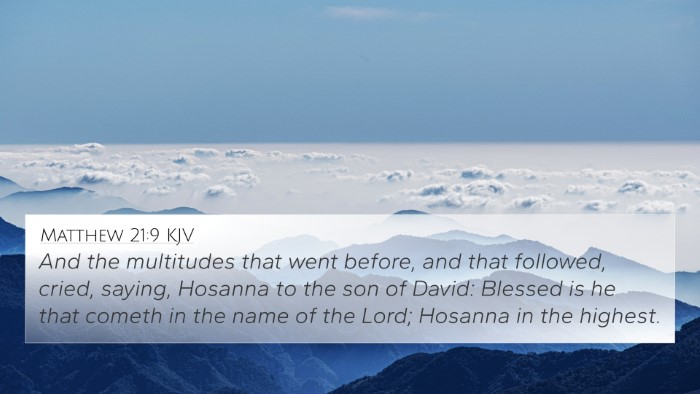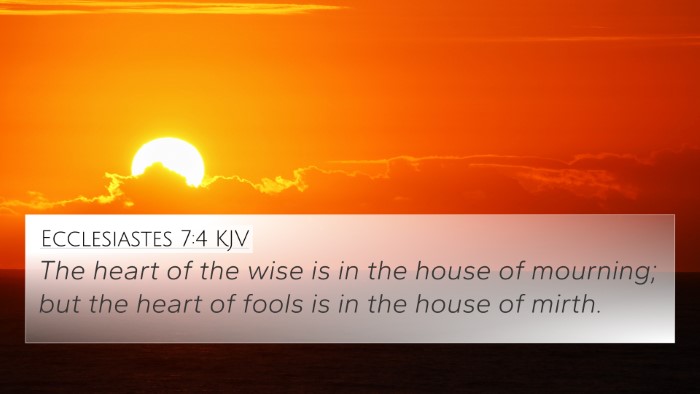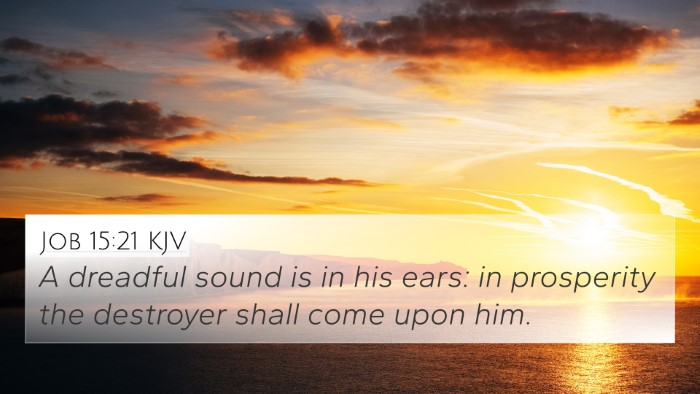Meaning and Interpretation of 1 Kings 1:41
1 Kings 1:41 (KJV): "And Adonijah and all the guests that were with him heard it as they had made an end of eating. And when Joab heard the sound of the trumpet, he said, Wherefore is this noise of the city being in an uproar?"
Summary of the Verse
This moment marks a pivotal point in the lineage of the Davidic kingdom. The verse occurs amidst a backdrop of political tension regarding the rightful successor to King David. Adonijah, the son of David, was attempting to declare himself king, but upon the announcement of Solomon's anointing, confusion and concern arise among Adonijah's supporters.
Commentary Insights
-
Matthew Henry: Henry explains that this verse captures the moment of shock and betrayal experienced by Adonijah and his guests who thought their celebratory feast heralded a new king. The sound of the trumpet signifies an announcement that disrupts their gathering, highlighting their unexpected collapse of plans.
-
Albert Barnes: Barnes interprets the noise as an essential indication of the impact of Solomon’s ascension. He emphasizes that Joab’s inquiry reflects the uncertainty that pervaded the atmosphere, as well as the political chaos that arose from one claim to the throne being undermined by another.
-
Adam Clarke: Clarke elaborates on the significance of the trumpet, stressing that it is traditionally a herald of good tidings, but in this context, it represents the end of Adonijah’s ambitions. He highlights how the uproar embodies the shifting dynamics in the royal lineage, leading to the ultimate establishment of Solomon’s reign.
Theological Themes and Cross-References
This verse presents a vivid example of biblical themes of succession, conflict, and divine providence. Below are several key cross-references that illuminate these themes:
- 2 Samuel 15:10: "But Absalom sent spies throughout all the tribes of Israel, saying, As soon as ye hear the sound of the trumpet, then ye shall say, Absalom reigneth in Hebron." (The use of trumpets in declarations of royal authority.)
- 1 Kings 1:5: "Then Adonijah the son of Haggith exalted himself, saying, I will be king: and he prepared him chariots and horsemen, and fifty men to run before him." (Background on Adonijah’s rebellion.)
- 1 Chronicles 29:23: "Then Solomon sat on the throne of the Lord as king instead of David his father, and prospered; and all Israel obeyed him." (The conclusion of Solomon's anointing.)
- Psalm 2:1-6: "Why do the heathen rage, and the people imagine a vain thing?...Yet have I set my king upon my holy hill of Zion." (Prophetic elements of kingship.)
- 1 Kings 2:12: "Then sat Solomon upon the throne of David his father; and his kingdom was established greatly." (The firm establishment of Solomon's reign.)
- Proverbs 16:33: "The lot is cast into the lap; but the whole disposing thereof is of the Lord." (God's sovereignty in affairs of men.)
- Romans 13:1: "Let every soul be subject unto the higher powers. For there is no power but of God: the powers that be are ordained of God." (The divine order in governance.)
- Isaiah 9:6: "For unto us a child is born...the government shall be upon his shoulder..." (Foreshadowing of God's ultimate kingdom.)
- 1 Samuel 16:13: "Then Samuel took the horn of oil, and anointed him in the midst of his brethren: and the Spirit of the Lord came upon David from that day forward." (The anointing process that underscores divine selection.)
- Matthew 1:1: "The book of the generation of Jesus Christ, the son of David, the son of Abraham." (The significance of the Davidic line leading to Christ.)
Connections Between Bible Verses
The connections here are rich and tell the overarching narrative of God's sovereignty over Israel’s monarchy. The struggles between various heirs to David's throne reflect a recurring biblical theme of God's chosen ruler, which culminates in the New Testament theology of Jesus Christ as the ultimate King.
Linking Bible Scriptures:
By comparing 1 Kings 1:41 with other verses, we can glean how themes of succession and divine intervention permeate scripture. Adonijah’s rebellion reflects a broader biblical commentary on the human quest for power juxtaposed against God’s ordained plans.
Thematic Bible Verse Connections
Applying comparative analysis to these verses can elucidate significant themes in scripture:
- Succession and Destiny: The struggle between Adonijah and Solomon showcases God's hand in the line of succession.
- Authority and Rebellion: The contrasts between the declared and the anointed king inform us about the nature of divine authority.
- God's Sovereignty: The narrative paints a picture of God's unshakeable control over earthly kingdoms.
Cross-Referencing Biblical Texts for Deeper Understanding
To fully appreciate the context and implications of 1 Kings 1:41, one can employ various tools for Bible cross-referencing:
- Bible Concordance: A valuable resource for locating related verses and themes.
- Bible Cross-Reference Guide: Useful for exploring connections between the Old and New Testament.
- How to Use Bible Cross-References: Engaging in this practice can deepen theological understanding and application.
- Bible Chain References: Following a chain of scriptures helps reveal broader theological truths.
- Identifying Links Between Contexts: Cross-referencing strengthens understanding of thematic elements across scripture.
Conclusion
In examining 1 Kings 1:41, we see not only a moment of crisis among those vying for power but also the unfolding of God’s sovereign plan to establish Solomon as king. This verse serves as a backdrop for reflection on the themes of authority, rebellion, and divine purpose throughout scripture. Utilizing cross-referencing methods enriches our understanding of this passage, leading to a more profound appreciation of the interconnectedness of God's word.
